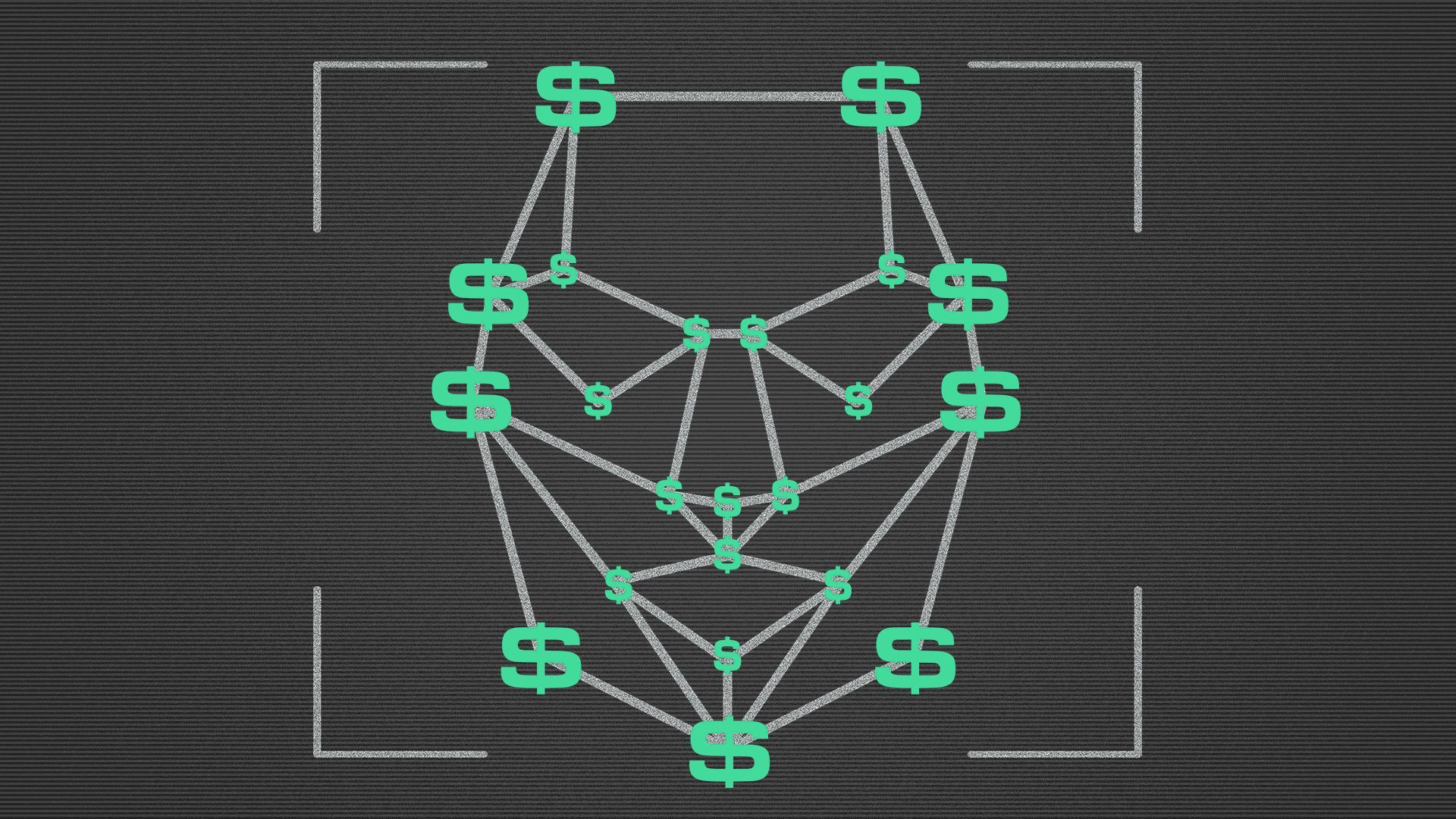| Face-recognition tech is coming to a store near you, if it's not there already, and that's sparking a new wave of opposition, Axios' Kim Hart reports. Why it matters: The systems can scan or store facial images of both shoppers and workers. Their use accelerated during the pandemic as retailers looked for ways to prevent fraud, track foot traffic with fewer employees, and offer contactless payments at a time when consumers were wary of interacting with others. Driving the news: More than three dozen advocacy groups launched a campaign late last week to pressure retailers to stop using facial recognition technologies, or to pledge not to use them. - "Facial recognition vendors are taking advantage of the pandemic to promote the technology to offer hands-free payments or monitor the distance between people, and stores are promoting them as features for safety and convenience," said Caitlin Seeley George, campaign director for Fight for the Future, which spearheaded the campaign.
- "But the truth is, you're giving up so much more than that," she said.
Where it stands: Stores including Walmart, Kroger, Home Depot and Target have said they won't use facial recognition technologies, per the advocacy groups' running list of retailers. - But Albertsons, Macy's and Apple Stores are among major retailers that do use the technologies, per the groups' list. Their privacy policies say they use it for security and to prevent fraud.
How it works: Facial recognition tools are primarily used by retailers for security reasons — chiefly, to prevent shoplifting — and they usually don't link images to personally identifiable information, says Brenda Leong, senior counsel for the Future of Privacy Foundation. There are plenty of other ways stores would like to use the technology, she said, such as: - Identifying loyalty club members the minute they enter a store to send them push alerts and text messages.
- Knowing exactly how long a customer is in the store to help tailor their experience in future visits.
- Using biometric systems for employees to clock in and out and monitor productivity. Advocates find this use particularly concerning because employees do not have the choice to opt out.
What's happening: In China, Alibaba and JD have opened futuristic grocery stores where automated carts follow you around, wrist trackers scan your selections and payments are made by facial recognition systems, per Wired. Amazon Fresh stores offer cashier-less "Just Walk Out" technology, but the company says its system doesn't use facial recognition. The other side: Just because a camera is used in a store doesn't mean it's identifying or storing specific faces. And companies argue the systems can improve shoppers' in-store experiences in other ways. The intrigue: Biometric information, like finger prints and facial images, is protected as personal data in states with strong privacy laws, like California. - The city of Portland, Oregon, became the first U.S. city to ban the use of facial recognition by the government, police and commercial enterprises like retail stores, hotels and restaurants.
- Last month, Democratic Sens. Ed Markey and Jeff Merkley reintroduced a bill that would ban federal agencies from using biometric technology.
What to watch: Some industries, including retail, are experimenting with biometric technologies that can interpret facial expressions, detect sweat on a person's skin or identify an elevated heart rate. | 






No comments:
Post a Comment